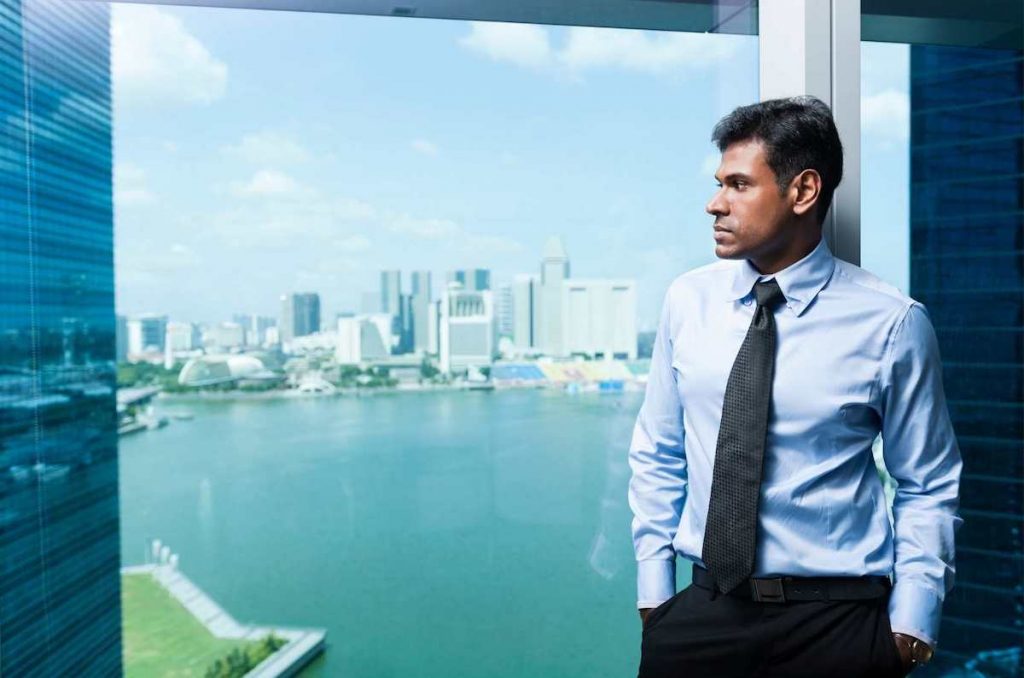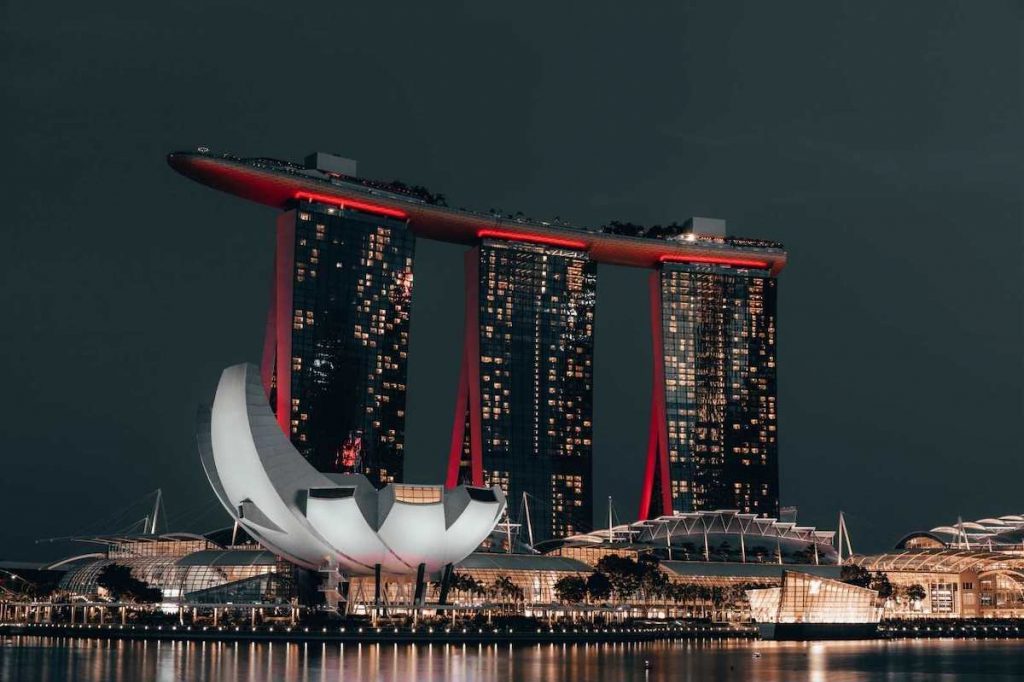Because of Singapore’s multicultural status and the strong presence of multinational companies, job interviews in Singapore may not seem all that foreign to Westerners. In fact, they may be more foreign to other Asians, such as Japanese or Koreans, who are used to rigid and formal interviews.
English is the official common language in Singapore. So you’ll probably have to speak English and you may run into a diverse menu of interviewers and their own styles.
There are some 3.6 million jobs on offer in the island state with a population of fewer than 6 million people. It’s one of my most common target destinations for job hunting clients within Asia, and I do business with Singapore residents who hail from various destinations, including Singapore itself.
The Lion City thrives on its diverse and highly educated workforce (in addition to its robust service staff of OFWs). Especially among global executives, Singapore is often the dream destination in Asia.
Because of its multicultural environment, job hunting and job interviews can vary widely. With smart preparation, you can stand out from the cookie-cutter stiffs. Here’s what’s likely to happen in your interview process in Singapore.

What is the normal flow for a job interview in Singapore?
The application and interview process for most companies differs little from what you’d find in New York, London, or Sydney. You either respond to an ad or follow up on a job tip with your CV or resume. Then if they’re interested, you’ll get emailed with an interview offer.
These days, it’s highly likely you’ll start with a Zoom or Skype call. That may be with the HR manager or another gatekeeper, rather than the decision maker.
7 big dos and 7 big don’ts for in-person job interviews in Singapore
Most of these are common sense, but even though Singaporeans workers sometimes take their sweet time and aren’t overwhelmingly stiff, things like punctuality and good manners are essential in a job interview there.
Do:
- Be punctual
- Be professional
- Dress appropriately
- Research the company and your interviewer(s)
- Ask insightful questions that subtly demonstrate your research
- Be polite
- Keep gentle eye contact with the person with whom you’re communicating (don’t stare like a psycho)

Don’t:
- Use slang when answering questions
- Interrupt your interviewers
- Have any distractions (such as your phone ringing)
- Be loud or overly physical (calm hand gestures rather than waving exaggerated arm movements and bulging eyes)
- Point with your finger (in most Asian societies, this is rude; instead, gesture with your whole hand, palm faced upward)
- Put your elbows on the table unless your interviewer is also doing it.
- Talk salary or reveal your current salary.
Preparing for your online interview
Make sure your Internet connection is stable and that the interview will not suddenly crash. These things are often forgiven, but there’s certainly nothing positive about them. They can also fluster you when you need to remain calm and level-headed.
Minimize any interference such as loud noises, family, pets. Do this interview in a quiet place where you are least likely to be disturbed.
Then do a test run to see how you’re looking in the webcam. If you have some blemishes or didn’t get much sleep, add a bit of foundation or concealer. Yes, even if you’re a man. Get the camera about level with the bridge of your nose. That means if you’re using the internal cam in your laptop, prop the laptop up on some books or a countertop.

And even though this is an online interview, show up a few minutes early and open the chat or put yourself in the waiting room. The interview being an online one does not mean that you can show up late or log in at the last moment thinking that you will quickly be admitted – you cannot foresee any connection issues and it is better to be safe than sorry.
How do online interviews in Singapore usually proceed?
Expect the usual questions like “tell me about your career until now” and “why are you interested in this job?” This first interview is usually more of a screening to see if you’re a good fit.
The interview will usually end with them asking if you have any questions. If the person is not a decision maker and this is more of a screening, focus on (1) showing that you have actually researched the company and position, (2) qualifying your fit for the job by using specific examples from your career.
This shows that you genuinely want the job and you’re worthy of moving to the next stage, which typically is an in-person interview. Note that things continue to change, and Singapore’s quite strict about lockdowns, so you may wind up doing most of your interviewing online.
That said, personal relations are especially valued in Asia. And Singapore really does thrive on meeting and talking warmly and personally. So unless things are very strict, be ready to put on your interview outfit and head into the office.
What to do and expect in an in-person job interview in Singapore
At a regular face-to-face interview, the same process applies, and it’s usually at the whim of the interviewer.
Do your research to be prepared
Whether you’re working with the company directly or through a recruiter, do your very best to find out whom you’ll be speaking with. Then go look them up on LinkedIn, Google them to see if they’ve been in the news, and take notes on what you find.
If you can drop specifics about notable things they’ve said or done, you’ll put yourself ahead of 90%+ of the other candidates.
Bring classy paper
In-person, also be sure to bring multiple copies of your CV/resume and any other required documents for your interviewers to look through. Often they’ll be using an incomplete version, such as what they downloaded from the job recruitment site. Bring the paper and be classy.

Business cards are still valued in Singapore, though they are less common than they used to be. Especially with Japanese, Koreans, and Chinese, business cards are often how your start a business interaction. Don’t use a card from your current job. Instead, get your own set of personal cards made. Include at least your name, email, main skills, and a URL to your personal page or portfolio (if you have one). Nothing too wild or fancy; just a traditional paper card on good paper stock.
While on the topic of paper, I always recommend for any in-person interview that you bring a clean pad of paper and a nice pen. Before the interview, job down a few notes on what you want to ask. During the interview, take a few notes, such as on key numbers, names, or things you want to refer to in your thank-you message (see below).
Don’t fixate on your paper and don’t lose good eye contact; just the occasional note shows your interest and it’s something 90% of interviewees don’t do. Most just sit there and talk.
Dress to impress
Look professional. That means the usual suits for men and business outfits for women. Unless you specifically know it’s a casual company, men are better off with a tie. Appearance matters in Singapore and even when it’s hot, dress sharply.
In Singapore, it is almost always better to overdress than to underdress. To underdress not only makes you look cheap it’s a bit of an insult to your business counterpart. It tells them they don’t matter enough for you to get yourself looking good.
What to expect in an in-person job interview in Singapore
Again, this is all down to the individual. And again, there are many styles you’ll encounter, but you can default to the typical structure of pleasantries, Q&A focused on you, and questions you might have.
If they or you are open to it, take the opportunity to get a brief tour of where you may be working. Especially if the interview is with the final decision maker. You want to know where you’ll be spending your time, don’t you?
Ice-breaking and a bit of light talk
In Singapore, it’s common to start with a bit of small talk. Don’t take this lightly and don’t take it as permission to be casual. Remain positive and genuine. Answer politely. For more savvy hiring professionals, this is actually part of the interview. They’re seeing how you get along socially.
Conversation and questions
Some interviewers may simply have a conversation and ask a few questions. Others may stick to a rigid list like:
- What are your best qualities?
- Why did you choose to apply for this job?
- Have you done x type of work before?
- Tell me about yourself.
- What are some of your weaknesses?
Others may have some unique questions. For example, an interviewer may ask you what fruit or animal you identify as. These aren’t jokes or a game. They, too, are showing different parts of your personality, such as your creativity, humor, and confidence. Think about them and don’t give cheeky responses.
Show your weaknesses, in moderation
Don’t be afraid to reveal some weaknesses, too. Strive to be as honest as possible, demonstrate self-awareness, and a desire to improve yourself. The weaknesses shouldn’t hinder your ability to do your job well. For example, if you’re applying to be a marketing manager, you don’t want to say you have bad organizational skills.
What you might say, however, is that you have a tendency to demand too much from younger employees. Or you can be too hard on yourself when you don’t meet deadlines. These are honest admissions that most people can relate to. Your honesty will likely be appreciated.
There are definitely no one-size-fits-all answers to help you ace every interview so just come in with sufficient preparation and research. Overall, presenting the truest version of yourself with professionalism is what you’re aiming at. Pay attention to your interviewer’s style and give them what they want. Don’t waste their time and don’t b.s.
Give unique answers whenever you can to help you stand out from the crowd as well as to make you appear more special and even professional. Adding a bit of humor can help your case, but don’t be a clown and stay away from sarcasm. Very obvious jokes only.
Singaporeans like to laugh, and enjoy some wordplay. It helps people relax and get more comfortable with each other. You’ll also run into some rather cheeky humor among the older folks. This brings in flavors of all the region’s cultures, especially Malay, Chinese, and Indian.
Language issues in Singapore
As mentioned, English is the default. But English, Mandarin Chinese, Malay, and Tamil are all widely spoken, representing the majority Chinese, Malay, and Indian populations.

Despite that, unless the job is specifically for a language like Chinese or Korean, expect to speak English.
Native Singaporeans have their famous Singlish, but as an expat, that’s not expected of you. You may also find that using loftier vocabulary here will reflect well on your Singaporean Chinese or Indian counterparts.
Unlike in the U.S., where using “big words” may make you seem stuck up or elitist, that’s usually not the case with Singaporeans. In fact, it’s a sign of good breeding.
This is similar in countries such as India, Sri Lanka, and Kenya, where English is an asset of the well-educated and upper classes. Call it post-colonial, elitist, or whatever, but it is what it is. I actually have a lot of fun with pulling out my spelling bee best when I do to such countries.
Understand what your potential employer’s position is
Singapore-based companies have a limit on the number of non-Singaporean hires they can make. For executives and well-educated expats, this may be around 15% to 20% depending on the industry.
If you’re coming from somewhere outside Singapore, it can be a long and complicated process for them to process all your paperwork, such as your visa. This means their top priority in hiring non-Singaporeans is making sure you have both hard and soft skills that they can’t find among local staff. So be sure to set yourself apart.
Fortunately, unlike in many other countries, these limitations aren’t as tough. For instance, you don’t have to know a foreign language or have a specific degree. If, however, the company is Asian, Latin American, or otherwise deals in foreign languages, your languages skills still may be one of the most important things they’re looking for.
What happens after the interview?
When the main interview (as opposed to the screening interview) is over, well, you wait, of course.
Thank them for their time
Send a thank-you email, ideally later that same day, otherwise early the next day. Address it to your main contact or the person with whom you interviewed. Thank them and ask them to pass along your thanks to everyone else who was in the interview, naming each of them.
And don’t just thank them for the interview; include a couple of specific points you discussed and restate your interest in the position. There’s no need to “re-sell” yourself. Just show them you care.
While you wait and if you don’t hear back
Now you’ll enter a waiting period (dependent on the company) when they’ll evaluate your performance.
Wait times for the results can differ. Some may call you back in a day or two ready to discuss salary. Some may be interviewing other candidates or waiting for final signoff from the higher-ups. Some may not even inform you of your rejection if you’re not accepted.
While there’s no hard-and-fast rule (again!), if you got a good feeling from the interview and you’re wondering when you’ll hear back, send a polite email to your main contact. Restate that you enjoyed speaking with them. Tell them you understand it takes time to decide. Restate a couple of specific strengths you bring to the company, its culture, and the job. Keep it brief.
All during this time, keep your options open. Take part in other interviews if you’re invited. If you’re lucky enough to land two offers and have one you prefer, tell them you received another offer but they’re your first choice. It may speed them to a decision and increase their offer.

Remain desirable and valuable, keep your value while waiting
Don’t just sit around hoping and praying for one company to fulfill all your dreams. Think in terms of abundance.
Granted, none of this advice is especially specific for Singapore. In terms of Singapore, you can expect a professional process. You should always emphasize manners. And don’t overdo it. Being overly self-confident and boasting of your accomplishments isn’t going to sway many employers.
Being calm and confident, smiling, and showing patience are all greatly valued attributed in Singapore and really in most Asian societies.
Interview well to get your dream job in Singapore
With strong wages, excellent work conditions, favorable tax conditions, and lots of tech and big companies, it’s no wonder Singapore is an active job market and where so many want to work.
For expatriates, it also offers a smoother path, thanks to the wide use of English and a melting-pot society. If you can attune yourself to the diversity, soften your harder edges, and show a bit of patience and persistence, your chances are good.
If you need a resume and/or CV, cover letter, or a LinkedIn tune-up, I have extensive experience working with professionals seeking a job in Singapore. I can position you for a specific role or market your strengths broadly if you need a general personal brand for networking. I’ve also been to Singapore and have colleagues there. I’d love to work with you, too.
Let’s get you a great job in this amazing global Asian city.




